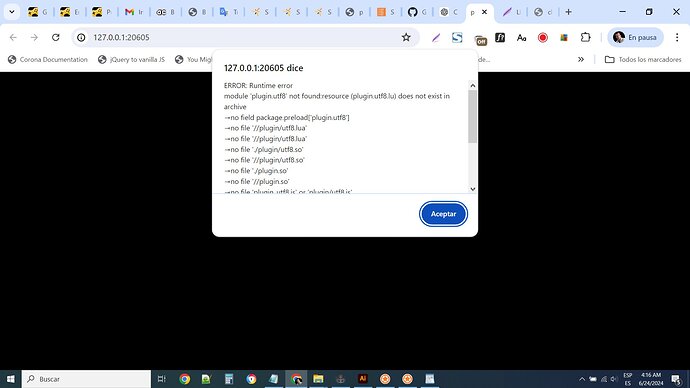Thank you @Qugurun I found an alternative for the utf8.char method:
utf8 = {}
utf8.char = function(...)
local function encode(code)
if type(code) ~= "number" then
code = tonumber(code)
if not code then
--error("Expected a number, got " .. type(code) .. " (" .. tostring(code) .. ")")
end
end
if code <= 0x7F then
return string.char(code)
elseif code <= 0x7FF then
return string.char(
0xC0 + math.floor(code / 0x40),
0x80 + (code % 0x40)
)
elseif code <= 0xFFFF then
return string.char(
0xE0 + math.floor(code / 0x1000),
0x80 + (math.floor(code / 0x40) % 0x40),
0x80 + (code % 0x40)
)
elseif code <= 0x10FFFF then
return string.char(
0xF0 + math.floor(code / 0x40000),
0x80 + (math.floor(code / 0x1000) % 0x40),
0x80 + (math.floor(code / 0x40) % 0x40),
0x80 + (code % 0x40)
)
else
--error("Unicode code point out of range: " .. tostring(code))
end
end
local chars = {}
for _, code in ipairs({...}) do
if type(code) ~= "number" then
code = tonumber(code)
if not code then
--error("Expected a number, got " .. type(code) .. " (" .. tostring(code) .. ")")
end
end
table.insert(chars, encode(code))
end
return table.concat(chars)
end
…

